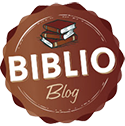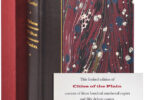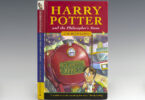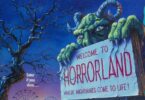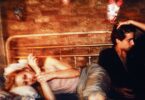Rachel Jagareski is co-owner of Old Saratoga Books, an open shop in upstate New York which has been in business since 1996 and online since 1998. They have over 50,000 titles in stock, with fresh arrivals nearly every day.

The quick searches you can do on the internet are handy, but can't often compete with the experience of delving into tomes like these!
One can infer a great deal about someone from their book shelves. It is always interesting to see what books people own and frightful to see how few books are often in residence. We’ve all been in homes of otherwise smart and interesting folks whose shelves contain little more than some obsolete school books, photo albums and a yearbook or two, and thought unflattering things. To lower those eyebrows and provide a buffer in the event of such biblio-emergencies as power outages and insomnia, I offer the following suggestions for a good home reference library.
A reference section needs at least one dictionary, thesaurus, book of quotations and atlas. I have several dictionaries: my workhorse; the 1976 New World Dictionary I’ve had since high school; the Compact Edition of the Oxford English Dictionary in three volumes of microscopic print and accompanying magnifying glass I splurged on (wonderful for noting when English words first originated in print and how they have morphed through the centuries); a three-volume set of Webster’s Third New International Dictionary which I used extensively in study for two rounds of a charity spelling bee; my trusty Scrabble dictionary; and a sentimental favorite, my bibliophilic grandma’s doorstop dictionary that resided on her nightstand throughout years of midnight consultations.
A paperback dictionary is handy to keep in the bathroom for tub soaks and other functions. You never want to run out of paper in the bathroom. Mens sana in corpore sano and all that (a Latin-English dictionary is good too). Other foreign language dictionaries are helpful if you read a lot of world literature.
A current atlas is a great resource to have on hand. The voracious armchair traveler will need to see where different mountain ranges, rivers and countries lie. A book of historical maps is also handy if you enjoy history and historical fiction or are frequently stumped by the old-fashioned names for various countries. A globe or wall map will enhance the home library as well.
Students and writers must have a thesaurus, a good handbook of style as well as a book of quotations. Bartlett’s is the gold standard of quotation anthologies and fun to dip into every once in awhile. Next to my Bartlett’s are some compilations of literary quotations and anecdotes, as well as a copy of Shakespeare’s Insults, by Wayne F. Hill and Cynthia J. Ottchen, indispensable for raising spirits: “Peevish baggage!”, “Thy mother’s name is ominous to children”, “They have marvelous foul linen”, etc. A rhyming dictionary for the poets among us is a treat.
In the pre-Internet days, many American homes used to have an encyclopedia set in residence. Today librarians turn up their noses at the shelf-space housing needs of these multi-volume works, and they have become quaint relics turning up at every yard and library sale. Collectors, however, still prize the 11th edition of the scholarly Encyclopedia Britannica, with its specially-commissioned articles by leading authorities and its wonderful illustrations.
One’s personal interests will dictate the remainder of the reference section. Nature field guides, cookbooks, religious works, books about various hobbies, genealogies, gardening tomes, art and music histories all have a place in the home reference library. To stock your own reference section inexpensively, browse through the used titles on Biblio.com or contact your local used bookstore. It will give you years of informative and interesting reading.
